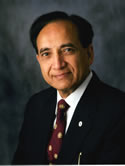Cancer of the oral cavity: A comparison between institutions in a developing and a developed nation Journal Article
| Authors: | Carvalho, A. L.; Singh, B.; Spiro, R. H.; Kowalski, L. P.; Shah, J. P. |
| Article Title: | Cancer of the oral cavity: A comparison between institutions in a developing and a developed nation |
| Abstract: | Background. The literature suggests that the natural history of squamous cell carcinoma of the oral cavity may vary and the prognosis is different in patients from developing and developed nations. The objective of this study was to compare the clinical presentation, management, and outcome of patients with oral cancer treated at tertiary care cancer institutions in a developing nation (Brazil- Centro de Tratamento e Pesquisa Hospital do Cancer A. C. Camargo [HCACC]) with those from a developed nation (United States- Memorial Sloan-Kettering Cancer Center [MSKCC]). Methods. Between January 1990 and December 1994, 602 patients underwent initial treatment in the study institutions. Results. Overall, patients from HCACC had a higher predominance of men (78.8% vs 54.6%; p < .001) and a higher prevalence of tobacco (88.1% vs 77.8%; p = .002) and alcohol consumption (80.9% vs 69.8%; p = .004). More patients at HCACC had advanced disease (stage III/IV; 73.4% vs 37.4%; p < .001). Even though the overall outcome was poorer in patients from HCACC (p < .001), after controlling for stage, there was not a statistically significant difference in disease-free or overall survival between the two institutions. Only at cancer-specific survival for early-stage disease (stage I/II) patients showed a difference (p = .05). Moreover, clinical stage (RR, 3. 7; 95% CI, 2.6-5.5) and definitive treatment (RR, 3.3; 95% CI, 2.4-4.6) were the only factors that remained as significant predictors of outcome on multivariate analysis. Finally, the rate of subsequent second primary cancers was higher in patients from HCACC (p = .03). Conclusions. Statistically significant differences were found in clinical presentation, tumor characteristics, and outcome in OC patients between the two institutions from a developing and developed nation. Overall outcome was poorer in HACC patients. However, after controlling for site, stage, and treatment, the outcome of these patients was similar, with the exception of a higher rate of occurrence of second primary cancers in patients from HACC. Given that the use of standard protocols of treatment offer similar outcomes, the establishment of education programs and screening measures for early diagnosis might be the best chance to improve overall outcome in OC patients in developing nations. © 2004 Wiley Periodicals, Inc. |
| Keywords: | adult; cancer survival; controlled study; treatment outcome; aged; disease-free survival; middle aged; major clinical study; clinical feature; cancer localization; squamous cell carcinoma; carcinoma, squamous cell; advanced cancer; treatment planning; united states; cancer staging; prospective study; prospective studies; prevalence; smoking; clinical protocol; prediction; postoperative complications; confidence interval; statistical significance; early diagnosis; developed country; alcohol; outcome; outcomes research; intermethod comparison; multivariate analysis; developing countries; brazil; developing country; neoplasms, second primary; second cancer; alcohol consumption; gender; screening test; mouth neoplasms; mouth cancer; education program; alcohol drinking; sex distribution; history of medicine; oral cavity cancer; tobacco smoke; developed countries; humans; prognosis; human; male; female; priority journal; article; developed nations; developing nations |
| Journal Title: | Head & Neck |
| Volume: | 26 |
| Issue: | 1 |
| ISSN: | 1043-3074 |
| Publisher: | John Wiley & Sons, Inc. |
| Date Published: | 2004-01-01 |
| Start Page: | 31 |
| End Page: | 38 |
| Language: | English |
| DOI: | 10.1002/hed.10354 |
| PROVIDER: | scopus |
| PUBMED: | 14724904 |
| DOI/URL: | |
| Notes: | Head Neck -- Cited By (since 1996):38 -- Export Date: 16 June 2014 -- CODEN: HEANE -- Source: Scopus |
Altmetric
Citation Impact
BMJ Impact Analytics
Related MSK Work





